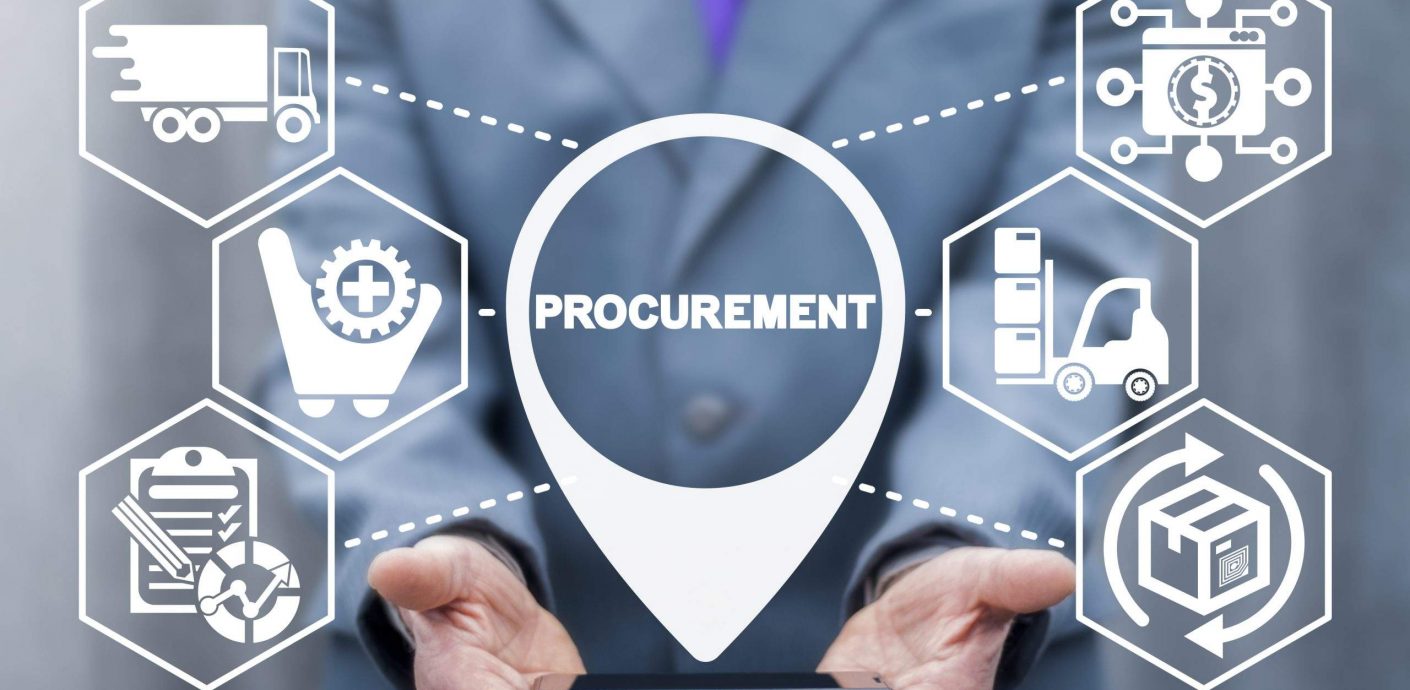Short-term rentals (STRs) have become an increasingly popular avenue to generate additional income. Thanks to the likes of Airbnb, Vrbo, and Booking.com, listing available spaces for people to stay in has never been easier. This has also meant that many people have made highly lucrative businesses out of their STRs.
However, if you, too, want to turn your STR into a successful business or just earn some extra money on the side, you must implement good STR property management practices.
In this guide, we’ll give you an overview of how to manage short-term rentals, informing you on what to consider when planning how to succeed in short-term rental property management. We’ll lay out the strategies and best things to do to ensure that your guests leave your property feeling satisfied.
There are also several avenues to follow, which will lead to effective marketing and boost your property’s occupancy rates. Without further delay, let’s get into how to nail STR management.
What is a Short-Term Rental?
A short-term rental (STR) is a property type that is let to guests on a temporary basis, such as for vacation lets or short-term stays. They can be a great form of additional income for anyone with vacant property, especially if they are located in a sought-after area that frequently attracts tourists. Essentially, an STR is a property not let out to tenants on a permanent basis.
What is Short-Term Rental Property Management?
Managing short-term rentals is the simple act of managing the property and ensuring that all the cleaning, maintenance, and bookings are looked after. It also entails ensuring that guests leave feeling satisfied with their stay and that occupancy rates remain high enough for the STR business to profit. Property managers have several responsibilities to take on when they enter the realm of STRs. Some of these responsibilities include:
- Ensuring the property is kept clean
- Creating and managing listings to promote the property
- Managing guest check-ins
- Communicating with guests
- Making sure the guests are fully satisfied with what they pay for
- Responding to previous guests’ reviews
- Keeping up with marketing trends
- Ensuring the property is well-maintained
If you’re willing to take on these responsibilities and think you have a property people would want to stay in over their vacations, then STR management may just be the perfect job for you.
Why Short-Term Rental Property Management Matters
STR Management is an essential part of running a short-term rental business. Good STR management will ensure that you get the most out of your business and that you deliver the best possible service to your guests. Having a proper STR plan will also ensure that the property is well-maintained and clean and will minimize some of the issues that come with running a vacation rental, such as double booking, payment mishaps, and guest dissatisfaction.
Since the pandemic, there have also been significant changes in the market, meaning effective short-term rental property management is now more important than ever. The following are some of the reasons why good management is vital in the current climate.
Growing Market Demand
More and more people are looking to STRs when they book vacations. There has also been an increase in demand from a corporate travel perspective as we see more and more companies book STRs like serviced apartments for their employees. With growing trends in tourism and an increase in guests’ demand for properties to rent for a shorter period of time, you must stand out from the crowd by executing good short-term rental property management practices.
Expectations of Modern Travelers
With a growing market demand, the rental market is expanding, which also means it’s becoming an increasingly competitive space to run a business in. That’s why the standards of certain accommodations have escalated, with more facilities and services available to guests to suit their needs.
This has also, however, made the modern traveler that much more demanding in their expectations of what an STR can deliver to them. That’s where property management is vital, as it means that the listing price, facilities, property type, and services will align to meet guests’ expectations.
Financial Optimization & Profit Maximization
Effective STR property management also means that you can take advantage of the latest pricing trends and maximize their approaches to high-season demand. Having an optimal pricing strategy also means that you can ensure more occupancy in your property all year round. Most STR managers want to ensure they get the most profits from their properties.
However, this does entail remaining competitive with the relevant market and being flexible enough in your structures to adjust your pricing accordingly. This comes from the high standards of STR management.
Difference Between Managing Short-Term and Long-Term Rentals
One of the misconceptions in the rental property market is that short-term and long-term rental are similar practices. However, some fundamental differences need to be made clear, as the two should not be conflated as this will affect how the property is marketed and what is expected of you as a property manager.
Some of the key differences between short and long-term properties are:
- The type of guests you want to attract: Having the property listed as a long-term rental means that tenants will want to stay in the property for an extended period. However, with a short-term rental, guests will only look at staying at your property for shorter stints.
- The length of time you rent out the property: Short-term rentals will only be let out for a maximum of a few months. However, Long-term properties are usually leased for six months or longer, depending on the terms of the contract that is signed.
- The type of property: Short-term rentals are usually located in popular holiday or tourist destinations, whereas long-term rentals are situated in residential areas or areas that are popular with commuters.
- Their management demands: Short-term rentals are typically a lot more work than long-term rentals. When managing an STR, a manager will need to ensure that the property is ready for guests on a quick turnaround basis. However, for longer-term rentals, the manager is only required to ensure that tenants pay rent on time and will only need to respond to maintenance or repair calls when alerted to issues by the tenant.
- Pricing and promoting: The pricing on a long-term rental property vs. a short-term rental will also differ hugely, with short-term pricing typically being more fluid than long-term pricing. Long-term rentals are also typically taken off advertising platforms when occupied. However, short-term rentals are promoted constantly to ensure their occupancy rate remains high.
Advantages
Most people will go into STR management to generate an additional form of income. If the business becomes lucrative enough, they may choose to do this full-time. There are several advantages to running an STR, perhaps the most obvious one being your agency over how you want the property to be run. The below gives a more concise breakdown of the advantages you can look forward to when you decide to enter into the STR market:
- An increased return on investment (ROI) compared to long-term rentals: If your STR strategy ensures a higher occupancy rate, it means that you are more likely to get an increased ROI compared to the long-term rental market.
- More agency and control over your accommodation and more flexibility, too: Having an STR under your management gives you far more agency over what you can do with the property, giving you the freedom to design, decorate, and rent out the property as and when you wish.
- More protection as a manager or STR owner given the protection from listing platforms: Platforms like Airbnb, Vrbo, and Booking.com make their money by charging hosts and STR owners to list their properties on the platform. It’s therefore in their best interest to protect the properties’ owners and managers, as it guarantees the platforms’ income.
- More potential for greater income: Given the pricing structures available to STRs, like dynamic pricing to increase occupancy rates, it’s more likely that effective management will lead to more income for your property.
Disadvantages
As with any business venture, some disadvantages come with running an STR. The key disadvantage is the amount of constant work that has to be put into managing an STR. Before you decide to get into STR management, you need to be aware of the following disadvantages associated with the industry.
- More labor intensive than long-term rentals: Although there is a lot more flexibility with short-term rentals, they also require a lot more maintenance, repair, and more frequent cleaning. STR managers must ensure that the property is up to scratch for every guest staying there. This makes them more labor-intensive than other rental properties.
- Income may fluctuate based on seasonality: Although effective pricing strategies can help ensure that the occupancy rates remain as good as possible, securing bookings can be tricky if there is a lack of demand for rental properties at a given time.
- There are often more complex rules and regulations associated with short-term rentals: Depending on where your STR is situated, you may need to get licenses and permissions to set up a vacation rental business.
- There are higher expenses for STRs: When you manage an STR, there are several overhead payments you have to consider when putting together your pricing plan. For example, you need to spend money on a cleaning service every time a new guest stays at your property. You will also have to pay more for marketing and promoting your property, as this will help to ensure occupancy.
- STRs require more maintenance and repairs: This ties in with increased expenses, but having people come in and out of the property regularly increases the chances of damage to the property. Although it’s possible to ask guests for a security deposit, you must ensure that your pricing strategy includes an allowance for covering the costs of damage or repairs. However, more intensive repairs or maintenance can require extended periods of downtime, which is something you may have to plan for and endure as an STR manager.
Best Practices in Short-Term Rental Management
Effective short-term rental management is crucial for both hosts and guests alike. Hosts benefit from increased revenue and positive reviews, while guests enjoy a seamless and enjoyable stay. Best practices in short-term rental management ensure that the property is well-maintained, safe, and provides a memorable experience for guests.
In the following section, we will delve into a list of essential best practices that encompass everything from property preparation and pricing strategies to guest communication and marketing. These practices will not only help hosts maximize their earnings but also foster a sense of trust and satisfaction within the booming world of short-term rentals.
Selecting the Right Platforms
By choosing the right platforms, like Airbnb and Vrbo, you can target specific demographics or preferences, increasing the likelihood of attracting guests who are a good fit for your property. Additionally, reputable platforms often provide built-in trust and security measures, reassuring both hosts and guests. Moreover, these platforms offer essential tools and resources for managing bookings, payments, and communication, streamlining the entire rental process.
Ultimately, selecting the right platforms not only enhances your property’s exposure but also simplifies management tasks and ensures a more seamless experience for everyone involved. Errandables works with a rentals united concept, meaning we offer access to over 40 distribution channels.
Pricing Strategies and Dynamic Pricing Tools
Leveraging dynamic pricing tools like Price Labs or partnering with platforms like Errandables-Partners can be a game-changer in short-term rental management. These tools streamline the process and provide hosts with preferred rates due to their wholesale approach. By integrating these tools, hosts can improve their bottom line by setting the right prices at the right time.
The real-time market analysis and data-driven adjustments offered by such platforms are essential for staying competitive and capturing maximum revenue potential. The following section will delve deeper into how these dynamic pricing tools and strategic partnerships can significantly enhance short-term rental management practices.
Efficient Guest Communication
Efficient guest communication stands out as a paramount best practice in short-term rental management, driven by the integration of automated triggered guest communications like the ones offered by Errandables. This approach involves pre-scheduled messages and notifications for various stages of a guest’s journey, from booking confirmation and pre-check-in instructions to post-stay follow-ups and review requests.
By automating these interactions, hosts can keep their brand identity intact while saving valuable time and avoiding the risk of forgetting critical touchpoints. These automated communications gather feedback on guests’ experiences and foster a sense of hospitality, extending invitations for future stays or revisiting the property during annual events.
Property Maintenance and Cleanliness
A clean and well-maintained property ensures a positive first impression for guests and plays a pivotal role in their overall experience. It contributes to guest comfort, safety, and satisfaction, leading to positive reviews, repeat bookings, and referrals.
Moreover, a well-kept property minimizes the risk of accidents or damages, reducing potential liabilities for hosts. Regular maintenance also prolongs the life of furnishings and appliances, saving hosts money in the long run.
The following section will explore the key aspects of cleanliness and maintenance in short-term rental management and discuss strategies to uphold these vital standards effectively.
Legalities and Local Regulations
Staying in compliance with local laws and regulations ensures the safety and well-being of guests, protects the property’s reputation, and mitigates potential legal issues. Failure to do so can result in fines, penalties, and even the shutdown of the rental property. Beyond legal consequences, upholding these standards fosters trust and goodwill within the community, as neighbors appreciate considerate and responsible hosts.
Additionally, it provides guests with peace of mind, knowing they are staying in a property that meets all necessary safety and quality standards. The following section will delve into the critical aspects of legal compliance and local regulations for successful vacation rental management.
Essential Tools and Technologies
For the modern STR manager, there are several tools and software that can be used that will make overall management practices more efficient and also make life a bit easier when managing property.
Property Management Software
Errandables is a great platform to use, especially if you have a property listed on several platforms or if you are in charge of managing several platforms. Errandables and similar software allow you to manage all your property’s finances, occupancy, and maintenance schedule all in one place.
Property management software has become an invaluable tool for short-term rental property managers, revolutionizing their operations and significantly boosting efficiency. By centralizing essential tasks like booking management, guest communication, and property maintenance, these software solutions enable managers to streamline their operations and optimize time management.
Automated check-in/check-out processes, real-time availability updates, and dynamic pricing tools empower managers to respond swiftly to market trends, ultimately driving higher occupancy rates.
Automated Guest Messaging Systems
These systems enable managers to establish clear and consistent communication throughout the guest’s journey, from initial inquiries to post-stay follow-ups. They can send automated messages for booking confirmations, pre-arrival instructions, check-in/check-out details, and even post-stay reviews. This saves managers a significant amount of time and ensures that guests receive timely and informative responses, enhancing their overall satisfaction.
Moreover, automated messaging systems can help address guest concerns promptly, resolving issues before they escalate and potentially affect the property’s reputation. By fostering effective and efficient communication, these systems contribute to improved guest experiences, positive reviews, and increased occupancy rates.
Security and Access Management
Security cameras and sensors can be integrated into property management software, allowing real-time monitoring of the property’s security status. Managers can receive alerts for any suspicious activity, enhancing overall property safety. Moreover, software solutions often provide comprehensive guest screening and verification tools, adding an extra layer of security by ensuring that guests are who they claim to be.
In essence, these technological advancements simplify access management and provide property managers with robust security measures, assuring both hosts and guests of a safe and secure stay.
Revenue Management Tools
Dynamic pricing tools analyze market conditions, demand fluctuations, and local events in real-time to adjust rental rates accordingly, ensuring that properties are priced competitively to capture high-demand periods. Moreover, integrated booking platforms simplify the management of reservations, payments, and invoices, providing a centralized system for tracking revenue streams. By automating these financial processes, property managers can reduce administrative overhead and minimize the risk of errors.
In-depth reporting and analytics tools further assist in identifying revenue trends and opportunities for growth. Overall, these online tools and software are indispensable for property managers seeking to boost revenue and profitability in the highly competitive short-term rental market.
Building and Leading a Successful Team
A well-coordinated team can handle property turnovers, guest inquiries, maintenance tasks, and emergency situations effectively, leading to smoother operations and satisfied guests. A successful team is the backbone of a thriving short-term rental business, driving guest satisfaction, positive reviews, and repeat bookings.
Hiring the Right Talent
The individuals you bring on board can significantly impact guest experiences, property maintenance, and overall operations. Skilled and dedicated staff can efficiently handle guest inquiries, property turnovers, and maintenance tasks, ensuring a seamless and positive guest experience.
Hiring individuals who align with your business values and customer service standards can enhance your property’s reputation and lead to repeat bookings and referrals. In the competitive world of short-term rentals, the right talent is not just an asset but a critical component for sustaining long-term success and achieving consistently high levels of guest satisfaction.
Training and Skill Development
Property managers can greatly benefit their short-term rental property business by prioritizing training and skill development within their team. Training programs encompassing various aspects of property management, customer service, and hospitality can equip team members with the necessary tools to excel in their roles. This can include training on property maintenance, effective communication, conflict resolution, and using property management software efficiently.
The Importance of Collaboration and Teamwork
When running a successful property management business, you also need to ensure that you listen to other members of your team who may have valuable suggestions that can improve your systems. For example, some team members may have a deeper understanding of technologies or marketing trends, which could add value to your business, drive guest satisfaction, and ensure that your business runs as optimally as possible.








